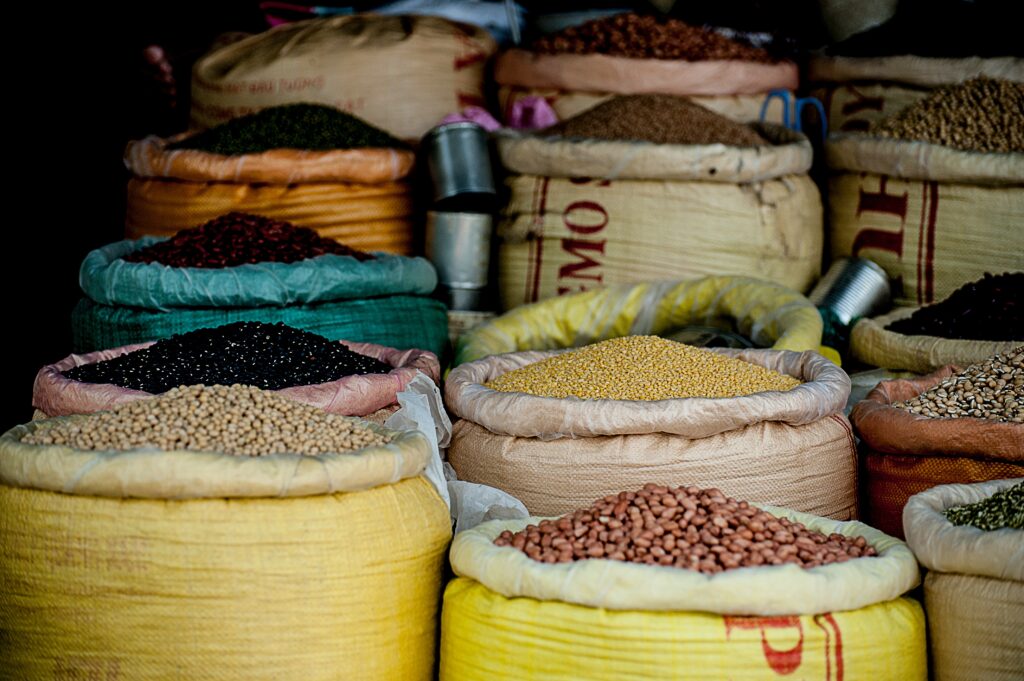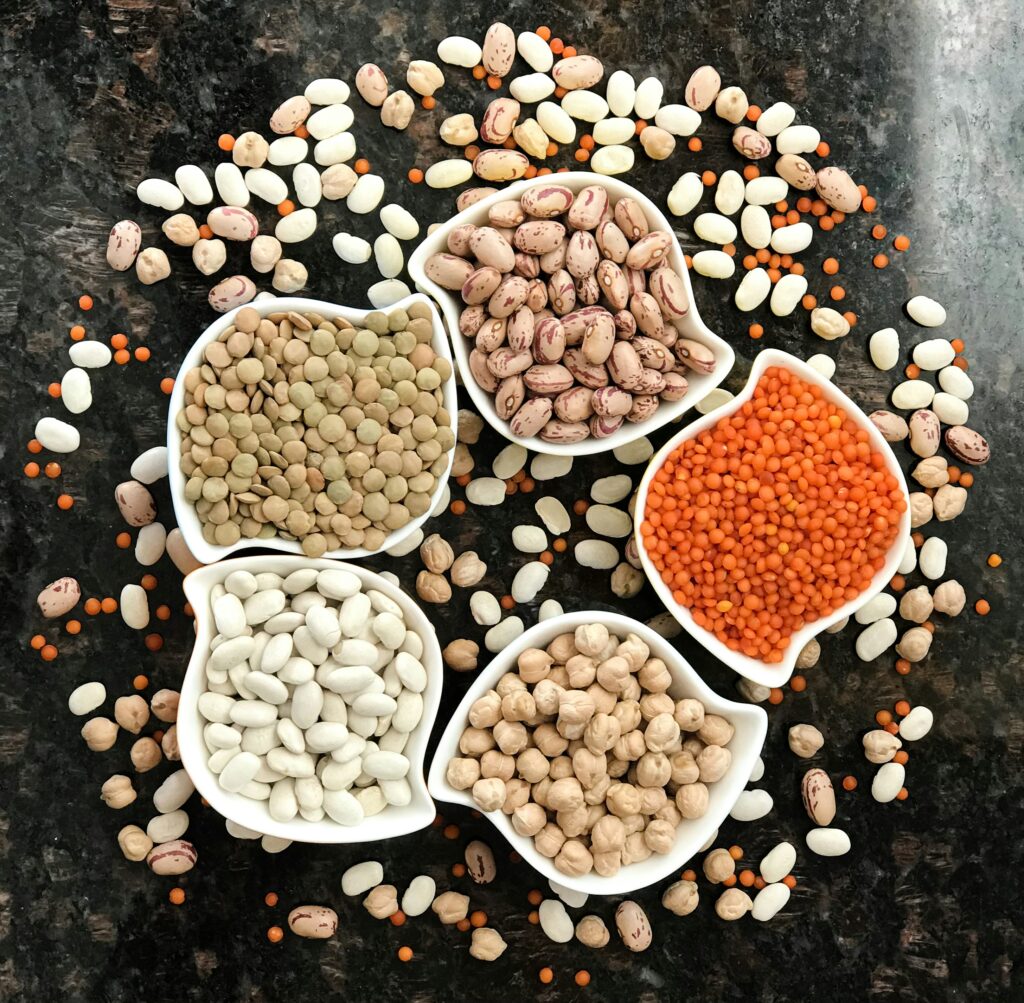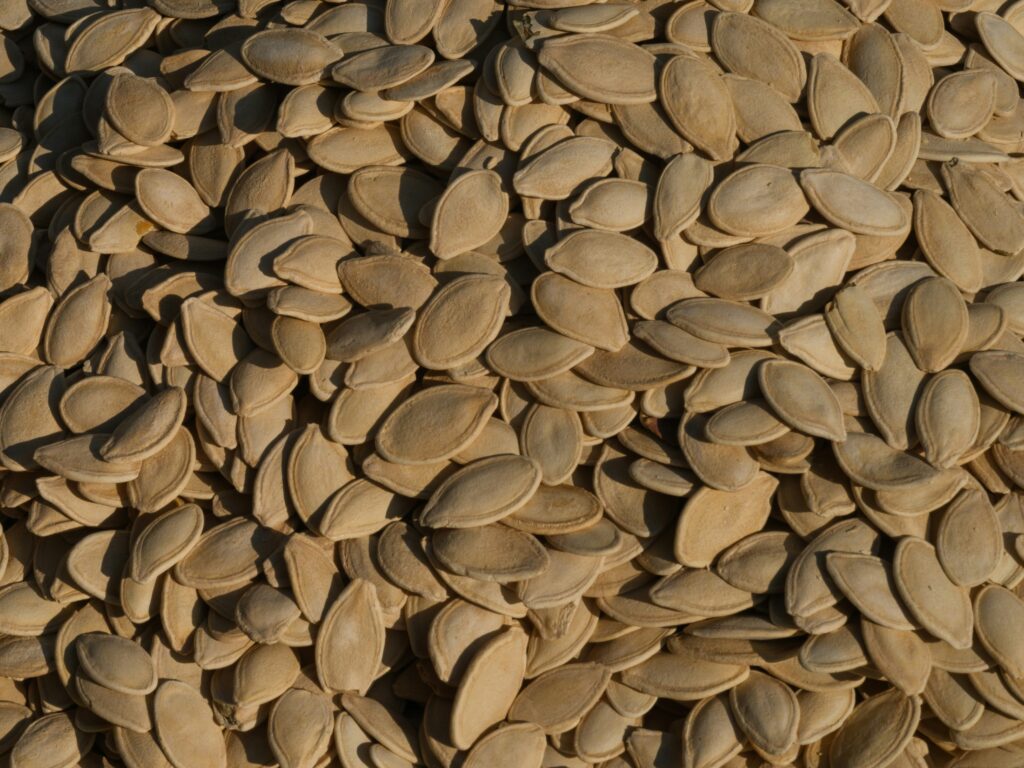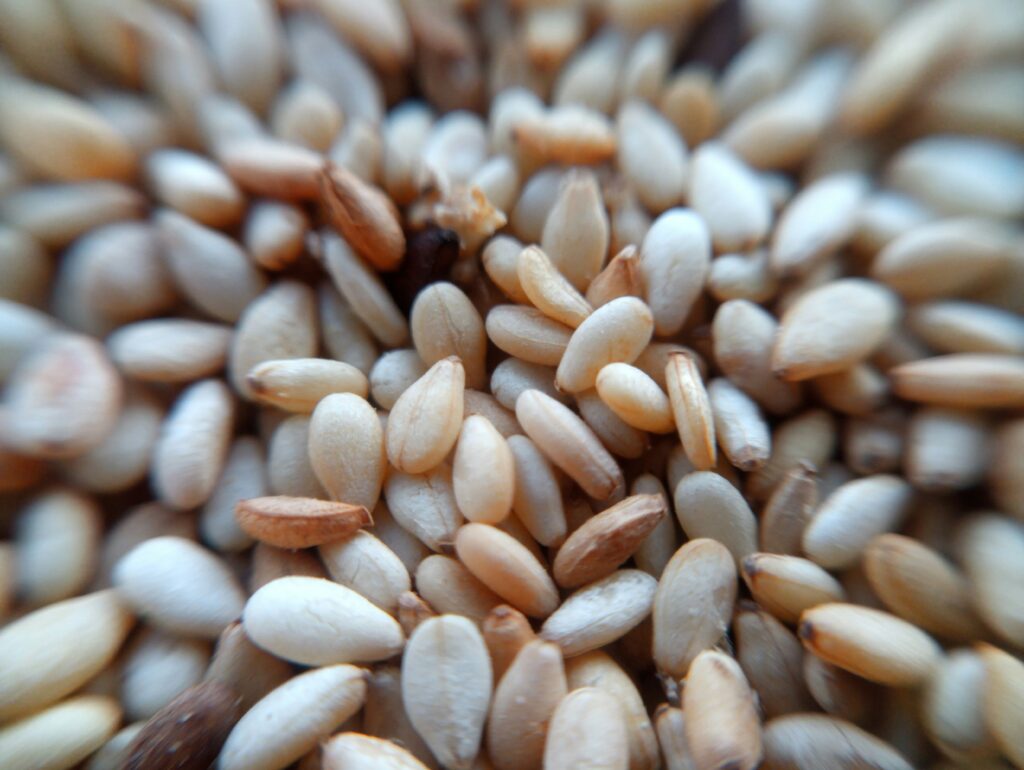A well-planned plant-based diet is full of vibrant fruits, leafy greens, whole grains, legumes, nuts, and seeds. It’s colorful, compassionate, and packed with fiber, antioxidants, and essential vitamins. However, even the cleanest vegan diet can cause nutrient deficiencies on a vegan diet if you’re not careful.
If you often feel tired, low on energy, or wonder if you’re really getting everything your body needs—this guide is for you. Let’s explore the nutrients that may be missing from plant-based eating, where you can get them from food, and which ones you may need to supplement.
Our Body’s Nutrient Requirements Can Be Classified into Two Types:
Macronutrients
These provide energy (calories) and are needed in large amounts.
1. Carbohydrates
Carbohydrates are mainly found in plant-based foods. Since they are abundant in most diets, deficiencies are rare. Carbohydrates are essential because they serve as the primary source of energy for daily activities. Starch, natural sugars, and fiber are easily consumed through a balanced plant-based diet.
- Function: Primary energy source
- Sources: Whole grains, fruits, vegetables, legumes
Examples:
Wheat, lentils, rice, potatoes, oats, flaxseeds, chia seeds, apples, beans, sugarcane, sugar beet, pineapple, wheat bran, whole grains, leafy greens, carrots, dates, and other fruits.
2. Proteins
Protein is the one macronutrient most people fall short on—especially in India, where awareness of its role in daily nutrition is still limited. Many traditional meals are low in concentrated protein unless intentionally balanced.
The good news? You can easily meet your daily needs by including seasonal grains, legumes, soy, nuts, and seeds—staples in many Indian kitchens. Whether you’re a regular adult or someone who goes to the gym, a thoughtful, plant-based diet can cover your protein needs for muscle repair, strength, and energy.

If you’re an athlete or aiming for muscle gain, you may need more protein. While whey is popular, plant-based protein powders are excellent alternatives. With proper planning, even without supplements, most people can reach 70–80g of protein daily through food alone.
🧠 Why Protein Matters:
- Repairs and builds body tissues
- Produces enzymes, hormones, and immune cells
- Supports muscle strength and physical recovery
🌱 Key Vegan Protein Sources:
- Legumes: Moong, chickpeas, kidney beans
- Soy Products: Tofu, tempeh, soya chunks
- Seeds: Flax, sesame, pumpkin, sunflower
- Nuts: Almonds, peanuts, walnuts
- Grains: Quinoa, whole wheat, millet

Photo by Süheyl Burak on Unsplash
Example Plant-Based High-Protein Meal Plan (~80g Protein)
| Meal | What to Eat | Protein |
|---|---|---|
| Breakfast | Almonds (8 pcs), flax/sesame seeds (1 tsp), pumpkin seeds (1 tsp), seasonal fruit, 50g peanuts | ~17g |
| Lunch | 2 whole wheat chapatis or rice + 50g cooked lentils/legumes + vegetables | ~23g |
| Snack | 50g roasted chickpeas + jaggery or dates | ~11g |
| Dinner | Option 1: 100g tofu or tempeh + chapati/rice Option 2: Khichdi (50g moong dal + 50g rice) + 20g soya chunks | ~24–26g |
✅ Total Daily Protein: ~75–80g
🔄 Tips & Variations:
- Add more nuts like cashews or walnuts in breakfast for extra protein and calories.
- Adjust seeds, grain, legumes, fruits based on season (e.g., use sesame seeds in winter instead of flax seeds).
- Most of these are carb-rich foods, so if your goal is weight loss, reduce grains slightly and focus more on seeds and lentils.
- Choose or adjust meals according to your body’s needs and lifestyle—no need to overthink once you find what works best for you
- Eat someday sprouts of chickpeas or lentils
- Don’t take more than 30g protein in single meal
- take protein as your weight and physical activity of daily
3. Fats
Good fats are essential for your overall health. They support joint lubrication, help absorb fat-soluble vitamins (A, D, E, and K), and are vital for brain function, heart health, hormone production, and cell repair.
To meet your healthy fat needs on a plant-based diet, include a variety of nuts, seeds, and a small amount of cold-pressed oils such as mustard, coconut, sesame, peanut, or olive oil.

Photo by engin akyurt on Unsplash
Avoid refined palm oil, deep-fried foods, and packaged snacks—they often contain harmful trans fats that increase health risks.
What Healthy Fats Do for You:
- Provide long-lasting energy
- Support brain and nervous system function
- Build and protect cell membranes
- Help produce essential hormones
- Aid absorption of vitamins A, D, E, and K
- Regulate inflammation and blood clotting (especially omega-3 & 6)
🧪 Types of Fats You Should Know:
| Type | Function | Sources |
|---|---|---|
| Saturated Fats | Needed in small amounts | Coconut oil, mustard oil |
| Unsaturated Fats | Heart-healthy, anti-inflammatory | Flaxseeds, walnuts, chia, sesame, avocados, olive oil |
| Trans Fats | Harmful, should be avoided | Fried food, packaged snacks, vanaspati, margarine |
🌟 Smart Tips:
- Eat a handful of mixed nuts and seeds daily (like flaxseeds, chia, walnuts, sunflower, sesame).
- Use minimal oil for cooking—choose cold-pressed over refined.
- Rotate your fat sources to balance omega-3 and omega-6 intake.
4. Water
- Function: Vital for every body function—digestion, temperature, detoxification.
- Sources: Water, fruits, vegetables, soups, herbal teas.
Micronutrients
These are needed in small amounts but are essential for proper body function.
5. Vitamins
Water-Soluble Vitamin
These vitamins play a key role in metabolism, immunity, brain health, red blood cell production, and more. Since they are water-soluble, they are not stored in large amounts in the body and must be replenished regularly through diet.
🔹 Vitamin B1 (Thiamine)
Function:
- Helps convert carbohydrates into energy
- Supports nerve, muscle, and heart function
- Essential for energy metabolism and proper brain function
Deficiency Symptoms: Fatigue, irritability, muscle weakness, nerve damage (beriberi)
Sources: Whole grains, legumes, nuts, seeds, green peas, sunflower seeds, and fortified cereals
🔹 Vitamin B2 (Riboflavin)
Function:
- Aids in the breakdown of proteins, fats, and carbohydrates
- Supports cell growth and energy production
- Important for skin, eye health, and nerve function
Deficiency Symptoms: Cracked lips, sore throat, skin disorders, inflammation of the mouth
Sources: Almonds, mushrooms, spinach, fortified plant milk, whole grains, and soybeans
🔹 Vitamin B3 (Niacin)
Function:
- Supports healthy skin, nerves, and digestion
- Helps convert food into energy
- Plays a role in DNA repair and cholesterol balance
Deficiency Symptoms: Fatigue, skin inflammation, mental confusion (severe deficiency = pellagra)
Sources: Peanuts, whole grains, legumes, mushrooms, brown rice, sunflower seeds
🔹 Vitamin B5 (Pantothenic Acid)
Function:
- Involved in the metabolism of fats, carbohydrates, and proteins
- Supports hormone production (especially adrenal hormones)
- Aids in the formation of red blood cells
Deficiency Symptoms: Rare, but may include fatigue, insomnia, numbness, and digestive issues
Sources: Avocados, mushrooms, sweet potatoes, legumes, whole grains, broccoli
🔹 Vitamin B6 (Pyridoxine)
Function:
- Crucial for brain development and neurotransmitter production (serotonin, dopamine)
- Supports immune function
- Helps form hemoglobin and regulates hormones
Deficiency Symptoms: Mood changes, irritability, confusion, weakened immune system
Sources: Bananas, chickpeas, potatoes, sunflower seeds, spinach, fortified cereals
🔹 Vitamin B7 (Biotin)
Function:
- Plays a key role in the metabolism of carbohydrates, fats, and proteins
- Important for healthy hair, skin, and nails
- Supports enzyme function
Deficiency Symptoms: Hair thinning, brittle nails, skin rashes, fatigue
Sources: Nuts (especially almonds and walnuts), seeds, sweet potatoes, cauliflower, legumes, oats
🔹 Vitamin B9 (Folate / Folic Acid)
Function:
- Essential for DNA and RNA synthesis
- Supports red blood cell formation
- Crucial during pregnancy for fetal brain and spinal development
Deficiency Symptoms: Anemia, fatigue, birth defects (neural tube defects), poor immunity
Sources: Dark leafy greens (spinach, kale), lentils, chickpeas, citrus fruits, beets, avocado
🔹 Vitamin B12 (Cobalamin) (Nutrient Deficiencies on Vegan Diet)
Function:
- Supports nerve function and red blood cell production
- Needed for DNA synthesis and neurological function
- Maintains energy levels and brain health
Deficiency Symptoms: Fatigue, tingling in hands/feet, memory issues, anemia
Sources: Not found naturally in plant foods – vegans must consume fortified foods (plant milks, cereals, nutritional yeast) or take a supplement.
This is the only essential nutrient not found in plant-based foods and is present only in animal products. It is highly recommended to take a supplement for this specific vitamin, as it plays a crucial role in the proper functioning of the nervous system. In this case, you don’t have a choice between food or supplements—you must take a supplement to meet your body’s needs.
🔹 Vitamin C (Ascorbic Acid)
Function:
- Strengthens the immune system
- Enhances iron absorption from plant foods
- Required for collagen production (skin, joints, gums)
- Acts as a powerful antioxidant
Deficiency Symptoms: Weak immunity, slow wound healing, bleeding gums, scurvy
Sources: Citrus fruits (oranges, lemons), amla (Indian gooseberry), bell peppers, guava, kiwi, broccoli, tomatoes, strawberries
Fat-Soluble Vitamins
These vitamins are stored in the body’s fat tissues and liver, so they do not need to be consumed daily. They are absorbed along with dietary fats, which means it’s important to include healthy fats—such as seeds, nuts, or cold-pressed oils—in your meals to ensure proper absorption.
Vitamin A
Functions:
- Essential for good vision, especially night vision
- Supports healthy skin and mucous membranes
- Strengthens the immune system and helps fight infections
- Plays a role in reproduction and cellular growth
Deficiency Symptoms:
- Night blindness
- Dry, rough skin
- Increased susceptibility to infections
- Eye dryness or damage (xerophthalmia)
Best Plant-Based Sources:
- Carrots
- Sweet potatoes
- Pumpkin
- Spinach
- Kale
- Red bell peppers
- Mango
- Papaya
☀️ Vitamin D (Calciferol)
Functions:
- Crucial for calcium absorption and bone health
- Helps maintain strong teeth and bones
- Supports the immune system
- May play a role in mood regulation and reducing inflammation
Deficiency Symptoms:
- Weak bones or rickets (in children)
- Bone pain, muscle weakness (in adults)
- Frequent infections
- Fatigue and low mood (especially in winter)
Sources:
- Sunlight is the most effective natural source. The skin produces vitamin D when exposed to sunlight (10–30 minutes a day on face and arms is usually enough, depending on skin tone and season).
- Very few plant foods naturally contain vitamin D.
Best Plant-Based Options:
- Fortified plant-based milk (soy, almond, oat)
- Fortified orange juice
- Fortified cereals
- Mushrooms exposed to sunlight (especially maitake, shiitake, UV-exposed varieties)
🔸 Note: Sunlight is the best and most natural source of vitamin D, especially for vegans. It’s important to get enough sunlight exposure during the summer and autumn months. When the sun is strong and UV rays are high, 20 minutes of exposure is usually enough. When UV rays are moderate, about 40 minutes is recommended. In winter, if there’s any sunny day, don’t miss the chance—try to get at least 2 hours of sunlight if possible.
Vitamin D is essential for calcium absorption in the body, which is necessary for strong and healthy bones. Although many calcium-rich foods are available in winter—such as sesame seeds and spinach—sunlight is often limited during this time. This can reduce the body’s ability to absorb calcium effectively.
However, the good news is that vitamin D is fat-soluble, which means it gets stored in the body’s fat tissues. So, if you get enough sunlight regularly in the summer and autumn, your body can store vitamin D and use it during the winter months, allowing better calcium absorption even when sunlight is limited.
Many people are deficient in vitamin D today because of an indoor lifestyle, lack of sun exposure, or living in colder climates. While it’s important to avoid overexposure to high UV rays in peak summer, moderate, regular sun exposure is highly beneficial. In cases where sunlight is not available, vitamin D supplements can be used to meet your daily needs.
Vitamin E
Vitamin E is a powerful fat-soluble antioxidant that plays a crucial role in protecting the body’s cells from damage caused by free radicals. It helps maintain healthy skin and eyes, supports the immune system, and is essential for the formation of red blood cells. Vitamin E also assists in widening blood vessels and preventing blood clots.
This vitamin is especially important for maintaining the integrity of cell membranes, supporting nerve function, and reducing inflammation in the body. Because it is fat-soluble, it should be consumed with a source of healthy fat for optimal absorption.
Deficiency is rare but may occur in people with fat absorption disorders. Symptoms can include muscle weakness, vision problems, impaired immune function, and neurological issues.
Best plant-based sources of Vitamin E include:
Sunflower seeds, Almonds, Hazelnuts
Avocados, Spinach and other leafy greens
Wheat germ oil, Olive oil, Pumpkin, Kiwi
Vitamin K
Vitamin K is a fat-soluble vitamin that plays a vital role in blood clotting, helping to prevent excessive bleeding from injuries. It is also important for bone health, as it supports the regulation of calcium in the bones and bloodstream, reducing the risk of osteoporosis and fractures.
There are two main forms of Vitamin K:
Vitamin K1 (Phylloquinone): Found mainly in leafy green vegetables and is responsible for blood clotting functions.
Vitamin K2 (Menaquinone): Found in fermented foods and produced by gut bacteria. It plays a role in bone and heart health, helping to prevent calcium buildup in arteries.
Deficiency in Vitamin K can lead to easy bruising, bleeding gums, heavy menstrual bleeding, and in severe cases, internal bleeding. It’s especially important for newborns, who are often given a Vitamin K shot at birth to prevent bleeding disorders.
Best plant-based sources of Vitamin K1 include:
Spinach, Kale, Broccoli
Cabbage, Lettuce, Parsley, Brussels sprout
6. Minerals
Major (Macro) Minerals
Microminerals are minerals that the body needs in larger amounts to carry out key physiological functions such as bone formation, nerve transmission, muscle contractions, fluid balance, and metabolism.
🦴 Calcium (1g daily) Nutrient Deficiencies on Vegan Diet

Photo by Jeeva Bharathi on Unsplash
Function:
- Builds and maintains strong bones and teeth
- Supports muscle contractions, including the heartbeat
- Essential for nerve signaling and blood clotting
Deficiency Symptoms:
- Weak bones (osteoporosis)
- Muscle cramps
- Numbness or tingling
Best Plant-Based Sources:
- Sesame seeds (til) have 8 time more calcium than milk, tofu, almonds, amaranth (rajgira), ragi, soybeans, leafy greens (spinach, kale), fortified plant milk
💪 Magnesium
Function:
- Regulates muscle and nerve function
- Supports energy production and enzyme activity
- Helps control blood sugar and blood pressure
- Important for bone and heart health
Deficiency Symptoms:
- Muscle cramps or spasms
- Fatigue, irritability
- Irregular heartbeat
Best Plant-Based Sources:
- Nuts (especially almonds and cashews), seeds (pumpkin, chia), legumes, dark chocolate, whole grains, spinach, bananas
💧 Potassium
Function:
- Maintains fluid balance in cells
- Supports muscle contractions and heart rhythm
- Helps with nerve function
- Balances sodium levels to regulate blood pressure
Deficiency Symptoms:
- Muscle weakness or cramping
- Fatigue
- High blood pressure or irregular heartbeat
Best Plant-Based Sources:
- Bananas, potatoes (with skin), sweet potatoes, avocados, tomatoes, beans, lentils, coconut water
🧠 Sodium
Function:
- Maintains fluid balance and blood pressure
- Required for nerve transmission and muscle function
Important Note:
- Needed in small to moderate amounts
- Excess sodium (especially from processed foods) can cause high blood pressure
Sources:
- Table salt, sea salt, pickles, seaweed, natural salt in vegetables
🔋 Phosphorus
Function:
- Works with calcium to build strong bones and teeth
- Helps in energy production and storage (as ATP)
- Supports cell growth and repair
Deficiency Symptoms:
- Weakness, bone pain
- Fatigue
- Irregular breathing
Best Plant-Based Sources:
- Legumes, nuts, seeds, whole grains, quinoa, oats, soy products
Chloride
Function:
- A component of hydrochloric acid (HCl) in the stomach, which aids digestion
- Maintains fluid balance and pH levels in the body
Deficiency Symptoms:
- Digestive problems
- Muscle cramps
- Imbalance in body fluids
Sources:
- Table salt (sodium chloride), sea salt, celery, tomatoes, lettuce, olives
🌿 Sulfur
Function:
- Important for protein structure (found in amino acids like methionine and cysteine)
- Helps in detoxification processes in the liver
- Supports skin, hair, nails, and joint health
Deficiency Symptoms:
- Weak nails or hair
- Joint discomfort
- Slow wound healing
Best Plant-Based Sources:
- Garlic, onions, cruciferous vegetables (broccoli, cabbage, kale), legumes, nuts, and seed
Trace (Micro) Minerals
Trace minerals are needed in small amounts, but they are crucial for overall health, metabolism, immunity, and many biological processes like hormone regulation and enzyme activation.
🔴 Iron
Function:
- Essential for making hemoglobin, which transports oxygen in the blood
- Supports energy production and brain function
Deficiency Symptoms:
- Fatigue, pale skin, weakness
- Anemia, poor concentration
Best Plant-Based Sources:
- Lentils, chickpeas, tofu, spinach, pumpkin seeds, jaggery, amaranth, quinoa
- Pair with Vitamin C-rich foods (like lemon or amla) to improve absorption
🟢 Zinc
Function:
- Boosts immune system
- Supports wound healing
- Involved in over 300 enzyme functions, including DNA synthesis and growth
Deficiency Symptoms:
- Weak immunity, delayed wound healing, hair loss, loss of taste/smell
Best Plant-Based Sources:
- Pumpkin seeds, sunflower seeds, chickpeas, cashews, oats, whole grains, legumes
🟣 Iodine
Function:
- Essential for thyroid hormone production, which regulates metabolism and growth
Deficiency Symptoms:
- Goiter (swelling in the neck), fatigue, weight gain, developmental delays
Best Sources:
- Iodized salt (main source), seaweed (like kelp and nori), potatoes, cranberries
- Important especially for pregnant women
⚪ Selenium
Function:
- Powerful antioxidant
- Supports thyroid gland function
- Protects cells from oxidative stress
Deficiency Symptoms:
- Weak immunity, muscle weakness, thyroid dysfunction
Best Plant-Based Sources:
- Brazil nuts (very rich—1–2 per day enough), sunflower seeds, brown rice, whole grains, legumes
🟠 Copper
Function:
- Helps in iron absorption and red blood cell formation
- Aids in energy production, brain development, and connective tissue health
Deficiency Symptoms:
- Anemia, fatigue, brittle bones, pale skin
Best Plant-Based Sources:
- Sesame seeds, sunflower seeds, cashews, lentils, chickpeas, whole grains, dark chocolate
🟡 Manganese
Function:
- Important for bone health
- Involved in enzyme function, metabolism, and antioxidant defense
Deficiency Symptoms:
- Poor bone formation, slow wound healing, blood sugar imbalance (rare)
Best Plant-Based Sources:
- Whole grains (brown rice, oats), nuts, leafy greens, legumes, pineapple
💧 Fluoride
Function:
- Helps maintain strong teeth and bones
- Prevents tooth decay and supports enamel strength
Deficiency Symptoms:
- Dental cavities, weak enamel
Sources:
- Fluoridated drinking water, black tea, spinach, tomatoes
- Too much fluoride may cause dental fluorosis, so maintain balance
🔵 Chromium
Function:
- Assists in blood sugar control by enhancing insulin action
- Supports macronutrient metabolism
Deficiency Symptoms:
- Poor blood sugar control, increased cravings, fatigue (rare)
Best Plant-Based Sources:
- Whole grains, broccoli, potatoes, green beans, apples, bananas, black pepper
⚙️ Molybdenum
Function:
- Supports enzyme function for breaking down amino acids and toxins
- Aids in detoxification in the liver
Deficiency Symptoms:
- Extremely rare, but may affect metabolism and detox systems
Best Plant-Based Sources:
- Legumes (lentils, peas, beans), whole grains, nut
Other Essential Compounds
1. Omega-3 Fatty Acids (ALA, EPA, DHA)
- Function: Brain health, anti-inflammatory
- Sources: Flaxseeds, chia seeds, walnuts (ALA); algal oil (DHA, EPA)
2. Antioxidants
- Function: Protect cells from damage
- Sources: Berries, green tea, dark chocolate, colorful fruits and veggies
3. Phytonutrients (Plant Compounds)
- Function: Anti-inflammatory, immune-boosting, heart health
- Types: Flavonoids, carotenoids, polyphenols
- Sources: Brightly colored fruits, veggies, spices like turmeric
Here, we can see that by including a wide variety of foods—such as grains (wheat, rice, ragi, jowar, rajgira), legumes (moong, chickpeas, kidney beans, urad, white beans, etc.), fruits (apple, orange, gooseberry or amla, mango, banana, etc.), vegetables (spinach, pumpkin, tomato, cabbage, carrot, bottle gourd, etc.), nuts (peanuts, almonds, Brazil nuts, cashews, walnuts, etc.), dry fruits (raisins, dates, etc.), seeds (fenugreek, sesame, flax, chia, etc.), soy products (tofu, tempeh), healthy oils, and small amounts of spices (like ginger and cumin)—you can easily meet almost all of your nutritional needs, except for one or two specific vitamins.
That’s why Ayurveda emphasizes eating a variety of foods and adjusting them seasonally. For example, if you eat flax seeds in summer, you can replace them with sesame seeds in winter—or rotate between them as needed. Similarly, if you have moong lentils one day, you can choose a different lentil the next day. Eat seasonal fruits and vegetables too; for instance, if you have a banana today, try a mango or another seasonal fruit the next day.
This is why dietary variety is so important—not just in grains and vegetables, but also in legumes, fruits, seeds, and other whole plant-based foods.
So, you don’t need to worry about getting every single vitamin and mineral every day. For example, if you eat spinach today, you’ll get enough iron to last for a few days, so you don’t need to focus on iron-rich foods again the next day. Instead, you can switch to other vegetables like carrots or radishes, which provide different nutrients like vitamin A or C.
The key is to include a variety of foods and keep changing them regularly. Similarly, if you eat almonds for a month, you can switch to other nuts like cashews or walnuts for a while—or even include both almonds and cashews at the same time for a mix of nutrients.
Engaging in regular exercise, physical activity, or playing sports helps your body function better and improves the absorption of nutrients.
| Category | Nutrients | Source Type |
|---|---|---|
| 1. Easily Met from Food | – Macronutrients: Carbohydrates, Fats, Water, Fiber – Vitamins: B1 (Thiamine), B2 (Riboflavin), B3 (Niacin), B5 (Pantothenic Acid), B6 (Pyridoxine), B7 (Biotin), B9 (Folate), C, A, E, K – Minerals: Iron, Zinc, Magnesium, Iodine, Copper, Selenium, Manganese, Phosphorus, Potassium, Sodium, Chromium, Molybdenum, Fluoride | ✅ Easily obtained from a balanced diet |
| 2. From Food or Supplement (if needed) | – Protein: Can be obtained from legumes, soy, nuts, etc. Supplement may be needed during periods of high demand (e.g., intense exercise, growth) – Vitamin D: Synthesized from sunlight exposure; also found in fortified foods. Supplement may be necessary in case of limited sun exposure – Calcium: Found in ragi, sesame seeds, moringa, etc. Supplement recommended if intake is low or for bone health | ⚖️ Can be obtained through food or supplements, depending on individual needs |
| 3. Only via Supplement | – Vitamin B12: Not naturally present in plant-based foods. Essential for vegetarians and vegans to take as a supplement. Also available in fortified foods. Note: Some algae and seaweed varieties (commonly used in countries like Japan and Korea) may contain B12 analogs, but supplementation remains the most reliable source. | ❗️Must be taken as a supplement or from fortified foods; widely available globally |
FAQs
1. Is iron from plants (non-heme iron) not absorbed well by the body?
Iron from plants is non-heme iron, which is not absorbed as easily as heme iron from animal products.
But don’t worry—you can improve absorption by eating foods rich in vitamin C, such as:
- Lemon
- Tomatoes
- Oranges
- Amla (Indian gooseberry)
- Mango
- Other citrus fruits
Also, cooking in iron utensils (like an iron tawa or kadhai) naturally boosts your iron intake. These habits are usually enough to meet your daily iron needs on a plant-based diet.
2. Which nutrient must be taken only by supplement on a plant-based diet?
The only essential nutrient that must be taken by supplement is Vitamin B12.
It’s important for:
- Brain function
- Nervous system health
- Red blood cell production
Since it’s not found in plant foods, all vegans and vegetarians should take a B12 supplement regularly.
3. Can you get enough protein on a plant-based diet?
Yes! Protein is found in:
- Legumes (moong, rajma, chana)
- Soy products (tofu, tempeh, soya chunks)
- Nuts and seeds
- Whole grains
If your daily diet includes enough variety and quantity, you can meet your protein needs.

